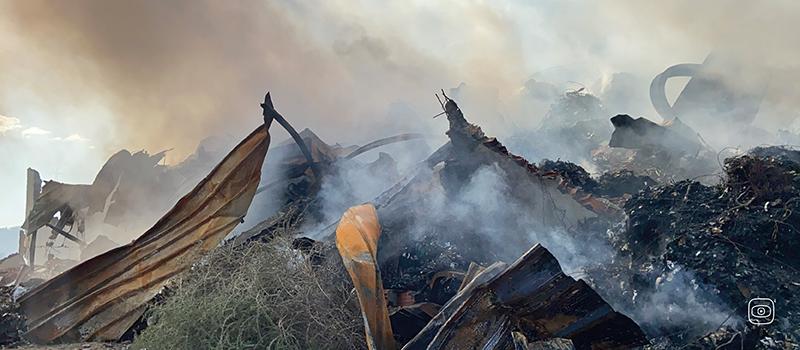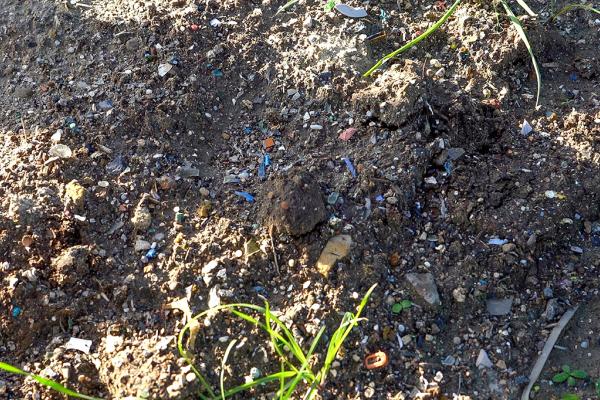Despite recycling rates increasing throughout Europe, not-so-conveniently recyclable plastic and other trash frequently end up abroad. Until 2018, China was the main receiver of low-quality plastic. Then, its decision to ban the imports of several types of waste caused turmoil in the Western world. In a few years, new destinations have emerged, and little control still makes transboundary movements of waste an attractive way to get rid of undesirable waste.
Only rarely do these trash schemes lead to international scandals like the lengthy one that recently involved Italy and Tunisia. Most of the time, authorities realize a shipment is illicit only once it gets to its destination, opening a burdensome and sometimes endless process of repatriation.
Picture of a fire that broke out in December 2021 inside a warehouse belonging to the receiving company in Tunisia. Image by Mabrouka Khedir






